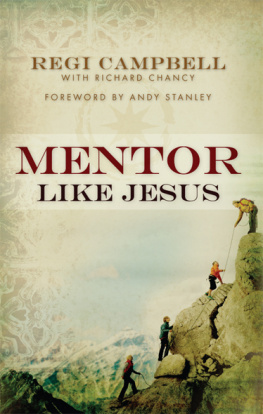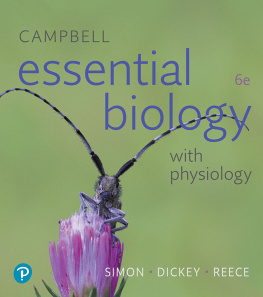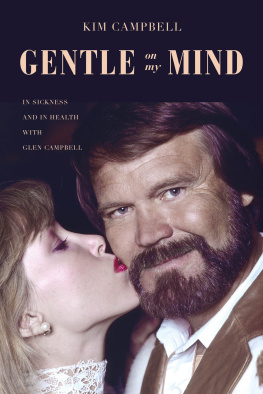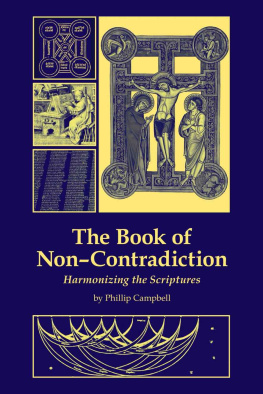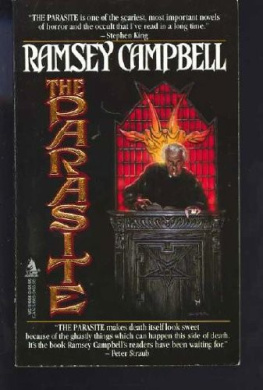Stu Campbell - Let It Rot!
Here you can read online Stu Campbell - Let It Rot! full text of the book (entire story) in english for free. Download pdf and epub, get meaning, cover and reviews about this ebook. year: 1998, publisher: Story Publishing, genre: Romance novel. Description of the work, (preface) as well as reviews are available. Best literature library LitArk.com created for fans of good reading and offers a wide selection of genres:
Romance novel
Science fiction
Adventure
Detective
Science
History
Home and family
Prose
Art
Politics
Computer
Non-fiction
Religion
Business
Children
Humor
Choose a favorite category and find really read worthwhile books. Enjoy immersion in the world of imagination, feel the emotions of the characters or learn something new for yourself, make an fascinating discovery.

- Book:Let It Rot!
- Author:
- Publisher:Story Publishing
- Genre:
- Year:1998
- Rating:4 / 5
- Favourites:Add to favourites
- Your mark:
- 80
- 1
- 2
- 3
- 4
- 5
Let It Rot!: summary, description and annotation
We offer to read an annotation, description, summary or preface (depends on what the author of the book "Let It Rot!" wrote himself). If you haven't found the necessary information about the book — write in the comments, we will try to find it.
Let It Rot! — read online for free the complete book (whole text) full work
Below is the text of the book, divided by pages. System saving the place of the last page read, allows you to conveniently read the book "Let It Rot!" online for free, without having to search again every time where you left off. Put a bookmark, and you can go to the page where you finished reading at any time.
Font size:
Interval:
Bookmark:
The Gardeners Guide to Composting
STU CAMPBELL


The mission of Storey Publishing is to serve our customers by publishing practical information that encourages personal independence in harmony with the environment.
Edited by Kathleen Bond Borie
Cover design by Meredith Maker
Cover photograph by Kevin Kennefick
Text design by Meredith Maker and Erin Lincourt
Production by Susan Bernier and Erin Lincourt
Line drawings on pages iv, 1, 5, 11, 13, 16, 20, 25, 29, 30, 33, 35, 37, 43, 45, 47, 84, 89, 94, 96, 101, 103, 106, 117, 121, 126, 129, 136, 140, 141, 142, and 145 by Jean Loewer, on pages 53, 65, 73, 85, 86, 93, 99, 119, 132, and 137 by Alison Kolesar, and on pages 67, 75, and 77 by Susan Berry Langsten
Indexed by Hagerty & Holloway
1975, 1990, 1998 by Storey Publishing, LLC
All rights reserved. No part of this book may be reproduced without written permission from the publisher, except by a reviewer who may quote brief passages or reproduce illustrations in a review with appropriate credits; nor may any part of this book be reproduced, stored in a retrieval system, or transmitted in any form or by any meanselectronic, mechanical, photocopying, recording, or otherwithout written permission from the publisher.
The information in this book is true and complete to the best of our knowledge. All recommendations are made without guarantee on the part of the author or Storey Publishing. The author and publisher disclaim any liability in connection with the use of this information. For additional information please contact Storey Publishing, 210 MASS MoCA Way, North Adams, MA 01247.
Storey books are available for special premium and promotional uses and for customized editions. For further information, please call 1-800-793-9396.
Printed in the United States by Versa Press
30 29 28 27 26 25 24 23 22 21 20
Library of Congress Cataloging-in-Publication Data
Campbell, Stu.
Let it rot! : the gardeners guide to composting / by Stu Campbell.
[3rd. ed.]
p. cm.(Storeys down-to-earth guides)
Includes bibliographical references (p. ) and index.
ISBN 978-1-58017-023-9 (pbk. : alk. paper)
1. Compost. I. Title. II. Series.
S661.C35 1998
631.875dc21 97-36405
CIP
To Gregory 
May he, like his father, have the chance
to pursue what interests him most.


One aker well compast, is worth aker three
Tusser (1557)
Now I am terrified at the Earth, it is that calm and patient,
It grows such sweet things out of such corruptions,
It turns harmless and stainless on its axis, with such endless succession of diseased corpses,
It distills exquisite winds out of such infused fetor,
It gives such divine materials to men, and accepts such leavings from them at last.
Walt Whitman, This Compost
Home Composting: Art or Science?
Somewhere, thousands and thousands of years ago, some hairy and slouched cave dwellers who groveled in the dirt with sticks and who managed to grow some food may have discovered that seeds grew better near the place where they piled the apparently useless refuse from their cave. Most of this waste material was organic matter.
I doubt very much that at the moment of discovery they had either the wisdom or the inclination to shout Eureka! But they must have passed the word along, because the idea of putting human, animal, vegetable, and mineral wastes on or into the soil, to make it better, spread to all corners of the world.

In the beginning, there was manure. Humanity has known for a long time that animal excrement is valuable stuff when it comes to growing things and has apparently always made efforts to save it. But shortly after early humans became friendly enough with animals to be able to persuade a few of them to live at home with them in a more or less peaceful relationship, they must have realized that there was never quite enough manure to go around. So they began to devise ways of stretching it and started to think about ways to make synthetic manure. They didnt know what they were doing, really. They probably just took a look at what was going on and then began trying things. Composting had begun long before our ancestors discovered it.
Decomposition is at least as old as the soil. The earth itself, as the poet Walt Whitman suggests, is something of a compost pile. It gives such divine materials to men, and accepts such leavings from them at last. Long before there were people around to observe it, composting was going on in every forest, every meadow, every swamp, and bog, and prairie, and steppe in the world. As Richard Langer says, Composting is a natural process that began with the first plants on earth and has been going on ever since.
Ancient people were the true discoverers of organic gardeningin spite of whatever valid claims people like Sir Albert Howard or Rudolf Steiner or J. I. Rodale may have to the modern title. Whoever they were, they were artists, not scientists. Only by trial and error were they able to learn what worked when it came to making synthetic manure. They didnt have anyone to guide them or to give them good advice because there was nobody around who knew very much. Things like psychrophylic bacteria and the relationship between carbon and nitrogen in the process of decomposition were the furthest things from their mindsand at least thirty centuries away in terms of time.
All they saw, maybe, was the forest floor where leaves fell, turned dark, and gradually disappeared to be transformed into the dark, fertile soil gardeners were someday to call humus. They must have realized that in time many things rot whether we try to do anything about it or not. Leave everything to Mother Nature, and eventually the conditions that encourage decay will establish themselves. We can be thankful that this is something that has been going on since shortly after the beginning of time.
Allowing nature to take its course, however, may take more time than we have. The modern practice of composting is little more than speeding up and intensifying natural processes. Thats all it is. When you come right down to it, finished compost is no more than treated or predigested (rotted) organic matter, which usually has undergone a natural heating process and which is very valuable stuff to incorporate into your gardens soil.
For too long there has been an air of cultist mysticism surrounding the art of composting. This is the kind of nonsense so many people find objectionable in a lot of composting literature. It is easy to get confused by gardening magazines and gardening books that describe the science of composting in such narrowly defined terms that you get the distinct impression that there is one, and
Font size:
Interval:
Bookmark:
Similar books «Let It Rot!»
Look at similar books to Let It Rot!. We have selected literature similar in name and meaning in the hope of providing readers with more options to find new, interesting, not yet read works.
Discussion, reviews of the book Let It Rot! and just readers' own opinions. Leave your comments, write what you think about the work, its meaning or the main characters. Specify what exactly you liked and what you didn't like, and why you think so.


